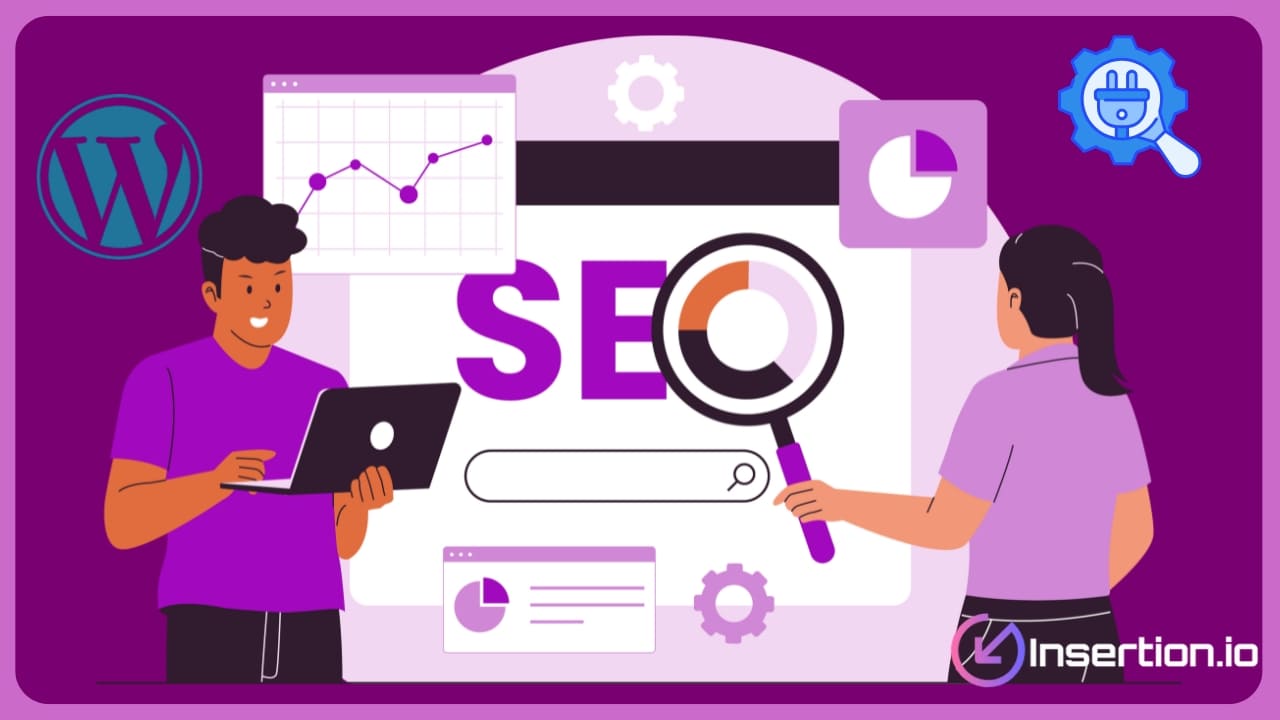
Many website owners struggle when their WordPress site becomes slow because they rely on too many plugins. Excessive WordPress plugins frequently reduce SEO performance and weaken website security. This is why many professionals now prefer seo in wordpress without plugin, because it offers greater control and cleaner optimization. Manually handling SEO tasks helps refine title tags, schema markup, meta details, and overall site structure.
Additionally, you can strengthen SEO rankings by improving WordPress content, page speed, and indexing settings. This complete guide explains every essential step you need to optimize WordPress without using any plugin.
Why Do WordPress SEO Without Plugins?
Doing WordPress SEO without plugins helps you control every optimization step with greater precision. Many website owners prefer manual SEO because it keeps the WordPress site fast and stable. A plugin may slow performance, whereas manual tasks improve site speed straightaway. You can add meta description tags, schema markup, and an XML sitemap manually, thus avoiding unnecessary features.
Additionally, manual methods help search engines understand your content more accurately. You can also adjust permalinks, optimize images, and manage indexing rules using the htaccess file. Consequently, you learn how to refine WordPress content without relying on plugins like Yoast SEO at all.
10 Useful Tips to Optimize SEO in WordPress Without Plugin
1. Choose Reliable Hosting:
Using reliable hosting significantly improves site speed, consequently helping your WordPress site perform better without using any SEO plugin. Additionally, managed WordPress hosting often provides stable resources, hence boosting SEO performance straightaway. Moreover, many website owners select better hosting because it strengthens overall website security.
- A reliable hosting provider boosts page speed, improves SEO performance, and supports optimization without plugins.
- Managed WordPress hosting enhances website’s stability, thus helping search engines understand content more effectively.
2. Select SEO-Friendly Themes:
An SEO-friendly WordPress theme helps optimize WordPress efficiently because clean code improves performance noticeably. Additionally, such themes support schema markup and meta tags, thus assisting search engines to crawl pages correctly. Moreover, lightweight themes undoubtedly reduce the chances of making the site slow.
- A clean-coded WordPress theme increases site speed, improves SEO rankings, and enhances visibility.
- Lightweight themes reduce page speed problems and help optimize SEO without relying on plugins.
3. Configure Site Visibility Settings:
WordPress users must check site visibility settings because incorrect indexing settings can block search engines from indexing content. Additionally, you should adjust these options carefully, hence avoiding mistakes that affect SEO performance. Moreover, proper configuration ensures the site visibility grows consistently without relying on plugins.
- Enabling indexing allows search engines to crawl pages, improving SEO performance significantly.
- Correct settings stop WordPress from blocking search engines from indexing this site accidentally.
4. Conduct Keyword Research:
Keyword research helps optimize SEO accordingly because it directs your WordPress content toward relevant search engine queries. Additionally, using free tools for SEO supports manual SEO efforts without using plugins. Furthermore, well-researched terms markedly improve your chances of gaining better SEO rankings.
- Solid keyword research improves optimization without plugins and strengthens specific SEO strategy elements.
- Targeted keywords help optimize WordPress content, thus assisting search engines understand meaning clearly.
5. Create SEO-Friendly URLs:
Using clear permalinks undoubtedly helps optimize WordPress because search engines understand URLs more easily. Additionally, clean URL structures support SEO tasks like manual SEO and indexing. Optimized permalinks allow search engines to crawl pages properly without relying on SEO plugins.
- SEO-friendly URLs improve site visibility and support optimization without plugins.
- Clean permalinks strengthen SEO performance and help rank your site higher.
6. Add Title Tags and Meta Descriptions Manually:
Adding title tags and a meta description manually certainly improves SEO in WordPress without a plugin. Additionally, writing a description tells search engines relevant details, thus enhancing visibility. Moreover, manually inserting like meta elements teaches you how to do WordPress optimization effectively.
- Manual meta description writing improves optimization without plugins and stabilizes SEO performance.
- Title tags and meta tags help search engines understand your content more accurately.
7. Optimize Content:
Well-optimized WordPress content strengthens SEO performance because consistent structure helps search engines understand your message. Additionally, using internal linking improves site structure, thereby boosting SEO optimization. Moreover, applying on-page best practices ensures optimization without plugins remains effective and sustainable.
- Strong WordPress content supports SEO tasks and strengthens rankings without relying on plugins.
- Internal linking enhances structure and helps search engines crawl pages efficiently.
8. Optimize Images:
Image optimization reduces page speed issues because large media files slow performance significantly. Additionally, using proper formats and compressing assets helps speed up WordPress without using plugins. Moreover, optimized images improve site speed and strengthen overall SEO strategy.
- Optimized images improve page speed and strengthen WordPress speed optimization.
- Compressed files assist search engines understand visuals while improving SEO without plugins.
9. Create XML Sitemaps:
An XML sitemap is a file every website needs because it guides search engines to crawl content efficiently. Additionally, creating one SEO-friendly sitemap manually helps avoid plugins like Yoast SEO. Moreover, manual creation lets you maintain indexing control through the htaccess file.
- A sitemap helps search engines crawl pages effectively, improving SEO rankings.
- Manual XML sitemap creation allows optimization without plugins and supports accurate indexing.
10. Improve Page Speed:
Page speed influences SEO performance significantly because faster loading pages gain better user engagement. Additionally, adjusting the code of your website, compressing files, and optimizing images help improve site speed. Moreover, many website owners enhance performance manually without relying on SEO plugins.
- Faster pages improve WordPress speed optimization and strengthen overall SEO strategy.
- Speed improvements support ranking growth and reduce chances of your site slow issues.
Conclusion
Mastering SEO in WordPress without plugins helps you maintain a faster site while improving SEO performance effectively. You gain direct control over important SEO tasks, including meta details, schema markup, permalinks, and indexing. Additionally, working manually through your theme code and htaccess file builds stronger SEO skills. This approach keeps your website lean and reduces risks caused by unnecessary WordPress plugins. Moreover, you can use free tools to refine your SEO strategy, perform a thorough SEO Audit, and strengthen long-term rankings. This complete guide gives you everything needed to optimize WordPress cleanly and efficiently. Will you now try optimizing your WordPress site without using any plugin?
FAQs
1. What is seo in wordpress without plugin?
It simply means improving your site’s visibility using manual settings instead of SEO plugins.
2. Can I do SEO on WordPress without plugins?
Yes, you can optimize content, URLs, and site structure manually.
3. Is manual SEO effective?
Yes, manual SEO works well when done consistently.
4. Does this method help page speed?
Yes, skipping plugins reduces load and improves site performance.
5. Is technical knowledge required?
Only basic WordPress understanding is needed.





Leave a Comment